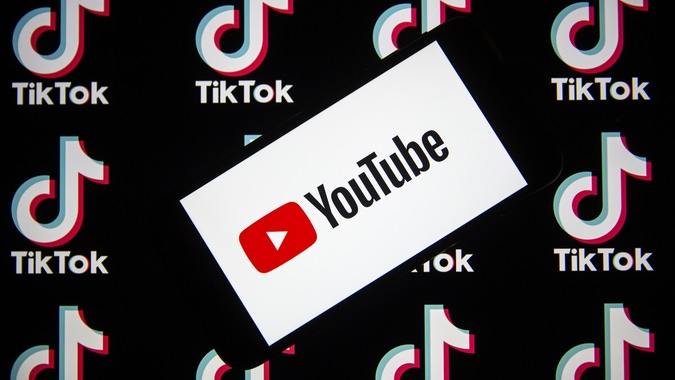TikTok is every other social media company’s problem these days — including YouTube. (And perhaps except BeReal.)

Anadolu Agency I Getty Images
On September 20, the Google-owned platform YouTube unveiled “Made on YouTube,” which discussed how it would compensate its new short-form creators, namely by lowering barriers to making money and aiming to give creators a larger share of the profits.
“We’re announcing more ways for creators to become partners, new ways to make money with Shorts, and a reimagining of how the music industry and creators work together,” the company wrote at the time.
The new policies would allow people to start monetizing videos earlier, at 1,000 subscribers and 10 million views over 90 days, the company said. For regular YouTubers, the threshold is 4,000 watched hours over 12 months and 1,000 subscribers.
TikTok came onto the scene in 2016 and soared in popularity during the pandemic, pushing Meta’s Facebook and Instagram to focus on short-form video. Last year, the company said it had more than 1 billion daily active users.
YouTube plans to gain some ground by bringing a host of short-term creators to the platform and see if their videos become more YouTube-like, a.k.a. longer, and thus more profitable for everyone as time goes on, Insider reported.
“A bunch of creators that tried to start on YouTube but didn’t get anywhere with 3- to 10-minute videos went to TikTok. Now those users may try to start on YouTube. If they keep at it, they become a long-form creator,” a former employee told the outlet.
Another employee who leads YouTube channels at a media organization told Insider the Shorts push could also hurt its wallet.
Shorter videos “will never be as lucrative as the long-form stuff,” they said. “If that dominates the YouTube landscape, it’ll be a problem for us.”
There have also been questions about YouTube’s plan to compensate Shorts creators. The “45%” of advertising revenue from videos, outlined in YouTube’s plan, attracted attention. But, it will be distributed based on views, and some unknown portion before that goes to music licensing.
“The revenue share remains the same, no matter if they use music or not,” the company said on its Shorts page.
The program will start taking applications for monetization in “early 2023,” according to YouTube.